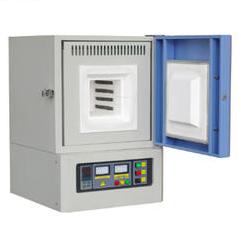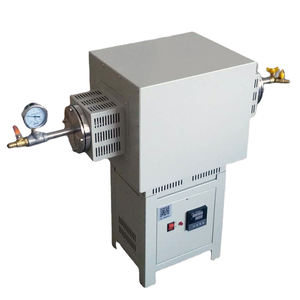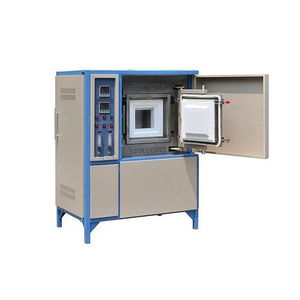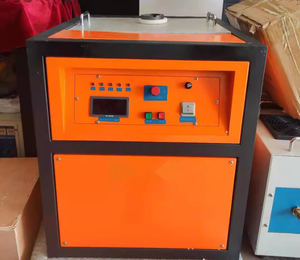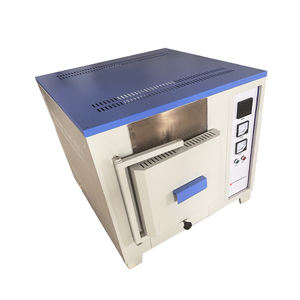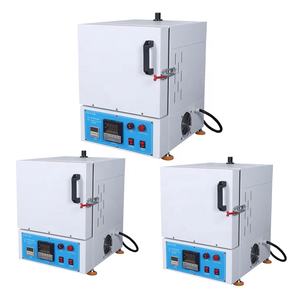Artisan Furnaces - Quality Craftsmanship Tools for Global Artists
Do Not Allow Your Heater Gasp for Air! The Rundown on Filter Adjustments
(how often change furnace filter)
Maintaining your home cozy and comfortable relies upon a concealed hero: your furnace filter. This simple tool works hard, capturing dust, pet dog hair, plant pollen, and other air-borne nasties. Yet like any kind of difficult employee, it requires normal breaks. Change it too hardly ever, and your whole system suffers. Change it frequently, and you’re wasting money. So, exactly how commonly should you alter your heater filter? Twist up, we’re diving deep right into the dusty details.
Main Product Keywords: Furnace Filter
1. Just what is a Heater Filter Doing? .
Think of your heater filter as the lungs of your heating unit. Air gets absorbed from your house. This air isn’t tidy. It lugs dirt drifting off your shelf, family pet dander from Fido’s nap, dust from the dryer vent close by, plant pollen slipping with windows, and even microscopic mold spores. The heater filter’s job is to catch this stuff prior to it reaches the heater’s delicate withins.
These filters are generally made from spun fiberglass, pleated paper, polyester, or occasionally cotton. They are available in a standard framework dimension, created to slide snugly into a port near where the air enters your heating system or air handler. The crucial part is the filter media itself– the material doing the real capturing. This media has tiny pores. Air streams through these pores quickly. Larger fragments obtain stuck trying to travel through. It’s a simple but reliable barrier.
The filter does not simply secure your furnace. It likewise cleans the air flowing back right into your home. A tidy filter indicates cleaner air for you to breathe. A clogged up filter means all that entraped crud isn’t obtaining captured anymore. It might even start blowing some of it back out into your rooms. Not perfect for anybody with allergies or desiring a dust-free home.
2. Why Altering Your Heater Filter Issues So Much .
Neglecting your heating system filter is a negative idea. It causes a domino effect of issues. First, air movement endures. Envision attempting to take a breath with a thick woollen scarf. That’s what happens to your heating system when the filter is clogged with dirt and debris. The system needs to function much more difficult to pull air through the clog. This strains the heater blower electric motor. Consider it like driving your vehicle with the hand brake on frequently. It wears the motor out quicker, causing expensive fixings or early replacement.
Second, effectiveness plummets. A struggling heating system uses much more power to relocate the same quantity of air. Your home heating bills will certainly approach. You’re actually paying extra money simply to get over the resistance of an unclean filter. In summertime, your a/c faces the same struggle with a dirty filter, driving cooling costs higher as well.
Third, air quality takes a hit. A filter bewildered with cruds can not catch new bits efficiently. Dust, allergens, and various other contaminants start recirculating openly in your home. You could discover even more dirt deciding on surfaces, even more constant sneezing fits, or intensifying allergic reaction symptoms. For people with bronchial asthma or respiratory issues, this is particularly frustrating.
Fourth, comfort suffers. Minimized airflow suggests much less warm or amazing air really makes it to your areas. Some locations might really feel stuffy or never quite reach the temperature you establish on the thermostat. Your system runs longer cycles attempting to compensate, yet it simply can not push adequate air.
Ultimately, disregarding the filter risks serious damages. Extremely limited air flow can trigger the heating system heat exchanger to overheat. This is a vital safety component. Overheating can lead to splits. Broken heat exchangers can leakage dangerous carbon monoxide gas into your home. While rare, it’s an extreme risk highlighting why filter upkeep is non-negotiable.
3. Exactly how Often Should You Really Change That Heating System Filter? .
So, the million-dollar concern. Fail to remember the old “once a season” policy. It’s also unclear. The reality? It depends. Numerous factors play a huge function:.
Filter Type: Fundamental fiberglass filters (1-inch thick) are economical yet capture only big particles. They obstruct fast. Change these every thirty days, particularly during hefty use. Pleated filters (1-inch to 5-inch thick) have much more surface and catch smaller sized particles. A common 1-inch pleated filter may last 60-90 days. Thicker, high-efficiency pleated filters (like 4 or 5 inches) can often go 6 months or more.
Household Occupants: Even more people indicate even more dust, skin flakes, and general task stirring points up. Include pet dogs? Double the problem. Canines and cats dropped dander and hair continuously. A busy household with children and animals could require to transform filters two times as typically as a bachelor living alone.
Air High Quality Variables: Do you live near a busy roadway? Construction website? Do you smoke inside your home? Is allergy season harsh where you are? A lot more airborne bits suggest the filter fills up quicker. Dusty atmospheres require even more constant modifications.
System Usage: Do you run your heater or air conditioner constantly? Live in an environment with severe warm or winter seasons? Hefty usage places extra air through the filter, packing it up much faster. Systems running year-round demand more interest than those utilized just seasonally.
Health and wellness Concerns: If anyone in your house has allergic reactions, asthma, or other breathing issues, cleaner air is important. Altering the filter more regularly than the minimum suggestion offers better air top quality defense.
The Most Effective Practice: Check your filter aesthetically monthly. Draw it out. Hold it approximately a light. Can you see light conveniently through it? Or is it caked with grey or black substances? If you can’t see much light, it’s time. Mark your schedule for a regular monthly or bi-monthly check. Set a suggestion on your phone. Do not wait until you see dust rabbits rolling throughout the flooring or hear the furnace straining.
4. Heater Filter Applications in Your Home .
Furnace filters aren’t just for forced-air heaters. They are crucial elements in several typical home heating and cooling configurations:.
Air Conditioning Solutions: Your air conditioning makes use of the exact very same air trainer and ductwork as your furnace. The heater filter secures the air conditioning coil from dust accumulation much like it secures the furnace heat exchanger. A filthy filter minimizes air conditioner efficiency and cooling power substantially.
Warm Pumps: Air-source heat pumps function similarly to main a/c in home heating and cooling down modes. They rely upon the heating system filter to keep the interior coil clean for reliable heat transfer year-round. Filter neglect harms heat pump performance in both summer season and winter.
Air Handlers: Houses with central heating boilers for warmth could still make use of a central air handler and ductwork for air conditioning and air blood circulation. These standalone air handlers constantly have a filter port. Altering this filter is equally as essential for air flow and air quality.
Houses with Multiple Solutions: Larger homes may have different heating and cooling systems for different areas or floors. Each system will certainly have its very own dedicated filter. You require to bear in mind to inspect and change all of them according to their usage and the aspects discussed previously. Do not forget the cellar system even if you spend much less time down there!
The core concept is universal: Any system that relocates air with ductwork to problem your home likely has an air filter safeguarding its machinery and cleaning your air. Searching for and maintaining that filter is essential.
5. Heating System Filter FAQs: Your Burning Inquiries Responded To .
Let’s take on those common head-scratchers:.
1. Can I just vacuum my furnace filter rather than changing it? Normally, no. Vacuuming might get rid of some surface area dust on basic fiberglass filters, however it won’t clean the deep-down entraped bits blocking the pores. Pleated filters are especially difficult to tidy successfully. Vacuuming can harm the filter media. Replacement is the only reputable means.
2. Do higher-priced filters last much longer? Not always. While thicker, high-efficiency pleated filters (like 4-5 inch) commonly have longer recommended change periods (6-12 months), their life expectancy still depends upon your home’s dust levels. A cheap fiberglass filter in a tidy home might aesthetically look all right longer than a costly one in a dusty, pet-filled home. Focus on the MERV ranking and density for ability, and constantly check visually monthly regardless of cost.
3. What does the MERV score imply? MERV means Minimum Effectiveness Coverage Worth. It rates a filter’s capacity to trap fragments between 0.3 and 10 microns. Greater MERV numbers (like 11-13) trap a lot more smaller bits (allergen, mold spores, animal dander) far better than lower MERV numbers (like 1-4). Nonetheless, higher MERV filters are denser and can restrict air movement more, specifically if your system isn’t developed for it. Check your heater manual for the advised MERV range. Generally, MERV 8-11 is an excellent equilibrium for many homes.
4. I discovered an extremely thick filter, yet my slot is just 1 inch wide. Can I utilize it? Never ever require a filter into a slot not made for it. Utilizing a filter thicker than your slot allows blocks air flow badly and can harm your system. Just utilize the filter density (depth) that fits your particular filter shelf. If you want a thicker filter for longer life and better purification, you typically need an expert to mount a bigger filter cabinet.
(how often change furnace filter)
5. My filter looks tidy after 3 months. Do I still require to alter it? It may look all right, however tiny fragments obstruct the reads time, even if you can not see them. Stick to the suggested maximum period for your filter type and home circumstance. Waiting longer dangers minimized efficiency and stress on your system. When unsure, change it out. Filters are cheaper than furnace fixings.

